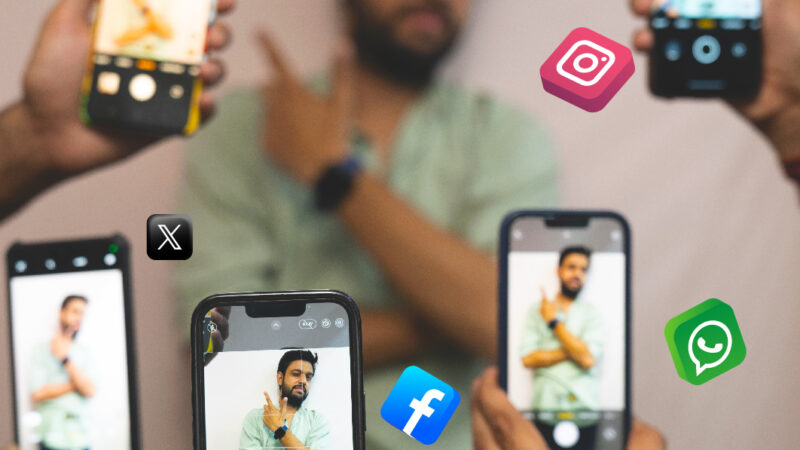Marketing in the Digital Age: Strategies for Event Success

The scene of event advertising has changed tremendously in the digital era. The coming of the internet has opened up many ways through which event planners can improve on inviting more people as well as optimizing logistics plus extending their audiences. Let’s see some ways in which the concept of digitalization is responsible for ensuring that all events are successful.
Embracing Digitalization: Revolutionizing Event Marketing
- Digitalization in Marketing for Events: Digitalization has transformed the marketing of events and there are plenty of ways to reach potential participants from targeted web ads carried on various digital tools to emailing each of them separately. The digitalization of marketing for events has transformed the means through which event details are circulated such that; it is faster and more far-reaching now than it ever was. Social media has been noted as playing a significant part in building the clamor for and generating interest in future occasions hence; furthering interaction which in turn results in improved turnout.
- Maximizing Reach: Utilizing digital channels like social media, email newsletters, and online communities enables event hosts to reach wider audiences across borders, hence broadening their audience scope to include people from diverse parts of the world. Utilizing these digital spaces effectively raises awareness of the event among many people worldwide. Event hosts can employ the potential of social connection to make an experience interactive and genuine that goes beyond divisions of space.
Conference Themes for Organizers
- Crafting Compelling Conference Themes: A good conference theme defines the event, inspires guests beforehand, and guides content and conversations throughout. This is achieved by ensuring that themes are in harmony with the latest trends and problems faced by the industry to ensure relevance and participation.
- Audience-Centric Approach: An effective conference theme would strike a chord with the audience, such themes unveil various audience pain points, interests, and dreams hence ensuring the theme fits well. Theme ideas can benefit significantly from conducting surveys or talking to your potential attendees.
Leveraging Event Organizer Apps
- Streamlining Event Management: Event organizer apps are a great way to simplify and coordinate your events, from the registration of attendees and selling tickets to time organization and feedback collection. The software serves as a one-stop solution for the logistics of your events; it also boosts efficiency in organizational duties.
- Real-Time Communication: The event organizer apps come with features, such as push notifications and in-app messaging, which makes it easier for organizers, speakers, as well as attendees to communicate effectively without geographical constraints hence resulting in continuous updates and opportunities for participation.
Social Media Event Marketing
- Amplifying Reach: Social media is very important for advertising events because organizers can inform a lot of people free of charge or using targeted adverts. It is a good idea to use such famous mediums as Facebook, Twitter, LinkedIn, and Instagram to reach more people for better interaction.
- Creating Engaging Content: There are several tactics including compelling visual content, interactive polls, behind-the-scenes glimpses, and influencer partnerships that can be used to attract audience attention and break dead ahead of the event.
Pre-Event Marketing Campaigns
- Building Anticipation: Pre-event marketing campaigns are vital to create enthusiasm and expectations among potential participants. They will lead to ticket sales and registration by creating an environment of thrill and imperativeness. Leveraging varied channels including email marketing, social media teasers, and countdown timers generates urgency and excitement, driving ticket sales and registrations.
- Offering Sneak Peeks: Giving out hints regarding who the keynote speakers are, session topics and all those extras that are exclusive makes the invitees excited thus reaffirming the essence of their attending such events. The trickery videos, a conversation with presenters, and hints of some discounts can effectively be used as a way of creating interest and curiosity.
The Role of Event Mobile Applications
- Enhancing Attendee Experience: Mobile event applications are a step ahead of attendants in a friendly and adapted manner because they have guidebooks, speaker profiles, maps for interactive use, and chances for interaction with others. Personalization of the event by users for an interactive high note during the whole session time is an implication contained in these applications.
- Facilitating Networking: Mobile event apps help participants such as attendees, speakers, and exhibitors to communicate and establish relationships through networking among themselves using characteristics like in-app messaging, attendee directories, and matchmaking algorithms. On top of that, linkages and collaboration are improved by networking sessions, meetups, and virtual lounges.
Conclusion
To sum up, mastering event success in the digital era requires one to have a strategic approach that fully utilizes the marketing potential of digitization. Crafting compelling conference themes, leveraging event organizer apps, harnessing social media for marketing, executing impactful pre-event campaigns, and optimizing event mobile applications are some of the key strategies. Events can be digitalized shifting comprehensively enabling immense opportunities for their success and making them memorable to encourage loyalty and increased attendance in the days to come. You can create interactive mind-blowing experiences for your participants.

